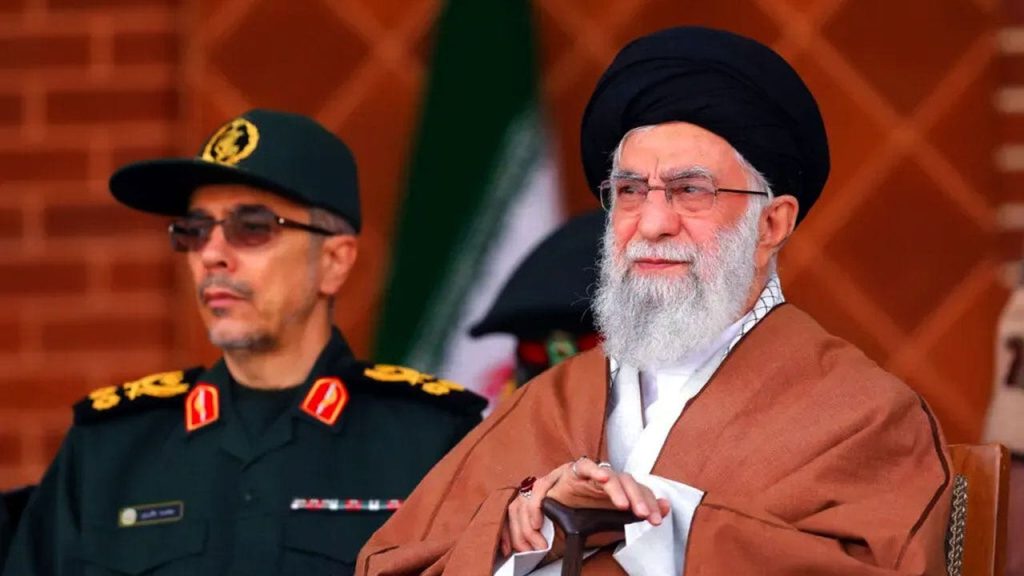Listen to the article
Iran has funneled approximately $1 billion to Hezbollah this year despite facing heavy international sanctions, according to senior U.S. Treasury Department officials who are now pushing for increased efforts to disrupt this financial pipeline.
John Hurley, the undersecretary for terrorism and financial intelligence, emphasized that Iran remains steadfastly committed to funding its proxy groups across the Middle East, even as its economy struggles under the weight of international sanctions.
“Even with everything Iran has been through, even with the economy not in great shape, they’re still pumping a lot of money to their terrorist proxies,” Hurley stated during a diplomatic tour of Turkey, Lebanon, the United Arab Emirates, and Israel this weekend.
The Treasury official highlighted that the current situation in Lebanon presents a unique opportunity to address Hezbollah’s influence in the country. “There’s a moment in Lebanon now. If we could get Hezbollah to disarm, the Lebanese people could get their country back,” he said.
Hurley emphasized that cutting off Iranian financial support is crucial to diminishing Hezbollah’s power. “The key to that is to drive out the Iranian influence and control that starts with all the money that they are pumping into Hezbollah,” he explained.
The revelation about Iran’s continued financial support for Hezbollah comes amid heightened tensions in the Middle East and ongoing concerns about Iran’s nuclear ambitions. Western nations have imposed significant sanctions on Tehran over its unwillingness to negotiate a nuclear agreement, though Iranian officials maintain their nuclear program exists solely for civilian purposes.
Earlier this year, President Donald Trump ordered Operation Midnight Hammer, a series of strikes against Iran’s key nuclear facilities that U.S. officials claim successfully impaired Tehran’s progress toward developing nuclear weapons capabilities.
Despite these setbacks and economic challenges, Iran has continued its efforts to project power and influence throughout the region and beyond. U.S. officials recently reported that they worked alongside Israeli and Mexican authorities to thwart an Iranian-backed plot to assassinate Israel’s ambassador to Mexico, Einat Kranz Neiger.
“We thank the security and law enforcement services in Mexico for thwarting a terrorist network directed by Iran that sought to attack Israel’s ambassador in Mexico,” Israel’s foreign ministry said in a statement. The ministry added that Israeli security and intelligence agencies “will continue to work tirelessly, in full cooperation with security and intelligence agencies around the world, to thwart terrorist threats from Iran and its proxies against Israeli and Jewish targets worldwide.”
A U.S. official confirmed to Reuters that the threat “was contained and does not pose a current threat.”
The Treasury Department’s increased pressure campaign comes at a time when U.S. diplomats are reportedly nearing a potential ceasefire agreement between Lebanon and Israel that would include provisions to disarm Hezbollah. Such an agreement would represent a significant shift in regional power dynamics and could potentially reduce Iran’s influence in Lebanon.
Financial tracking experts note that Iran’s ability to transfer such substantial funds despite sanctions highlights the persistent challenges in global efforts to restrict illicit financial flows. The $1 billion transfer demonstrates sophisticated evasion tactics, likely involving shell companies, informal money transfer networks, and sympathetic financial intermediaries in countries with less rigorous enforcement of international sanctions.
As regional tensions persist, U.S. officials view disrupting the financial relationship between Iran and Hezbollah as an essential component of broader efforts to stabilize the Middle East and counter Iranian influence throughout the region.
Fact Checker
Verify the accuracy of this article using The Disinformation Commission analysis and real-time sources.




10 Comments
This is concerning news. Diverting funds to terrorist groups like Hezbollah only serves to destabilize the region further. The US and its allies must find ways to enforce sanctions and cut off Iran’s financial pipelines to these proxy groups.
A billion dollars is an astonishing amount to be funneled to a terrorist organization like Hezbollah, especially given Iran’s own economic struggles. This highlights the regime’s warped priorities and the need for more robust monitoring and interdiction of these illicit financial flows.
This news is deeply troubling. Iran’s unwavering support for Hezbollah, even in the face of crippling sanctions, underscores their commitment to exporting extremism and instability throughout the region. The international community must redouble efforts to choke off this financial pipeline.
While I’m not surprised Iran continues to bankroll Hezbollah, the scale of the funding is still shocking. Cutting off this financial lifeline has to be a top priority for the US and its allies if they want to weaken Hezbollah’s hold on Lebanon.
Absolutely. Hezbollah’s influence in Lebanon is a major destabilizing force, and depriving them of Iranian money is critical to reducing their power and presence in the country.
It’s deeply concerning that Iran continues to prioritize funding Hezbollah over the wellbeing of its own people. This highlights the regime’s warped priorities and the urgent need to find new ways to enforce sanctions and disrupt these illicit financial flows.
While not surprising, the scale of Iran’s financial support for Hezbollah is still alarming. This underscores the need for continued sanctions enforcement and creative strategies to disrupt the regime’s ability to fund terrorist proxies. Securing Lebanon’s stability should be a key goal.
Agreed. Cutting off Hezbollah’s access to Iranian funds is crucial, but will require sustained pressure and coordination among the US, its allies, and regional partners. Disrupting this financial lifeline is key to reducing Hezbollah’s influence in Lebanon.
It’s appalling that Iran continues to prioritize funding terrorist activities over the wellbeing of its own citizens. This underscores the need for tougher enforcement of sanctions and greater international coordination to choke off Hezbollah’s financial lifelines.
Agreed. The US and its allies need to get creative in finding new ways to disrupt Iran’s ability to fund Hezbollah. Crippling their financial networks is crucial to reducing Hezbollah’s influence in the region.